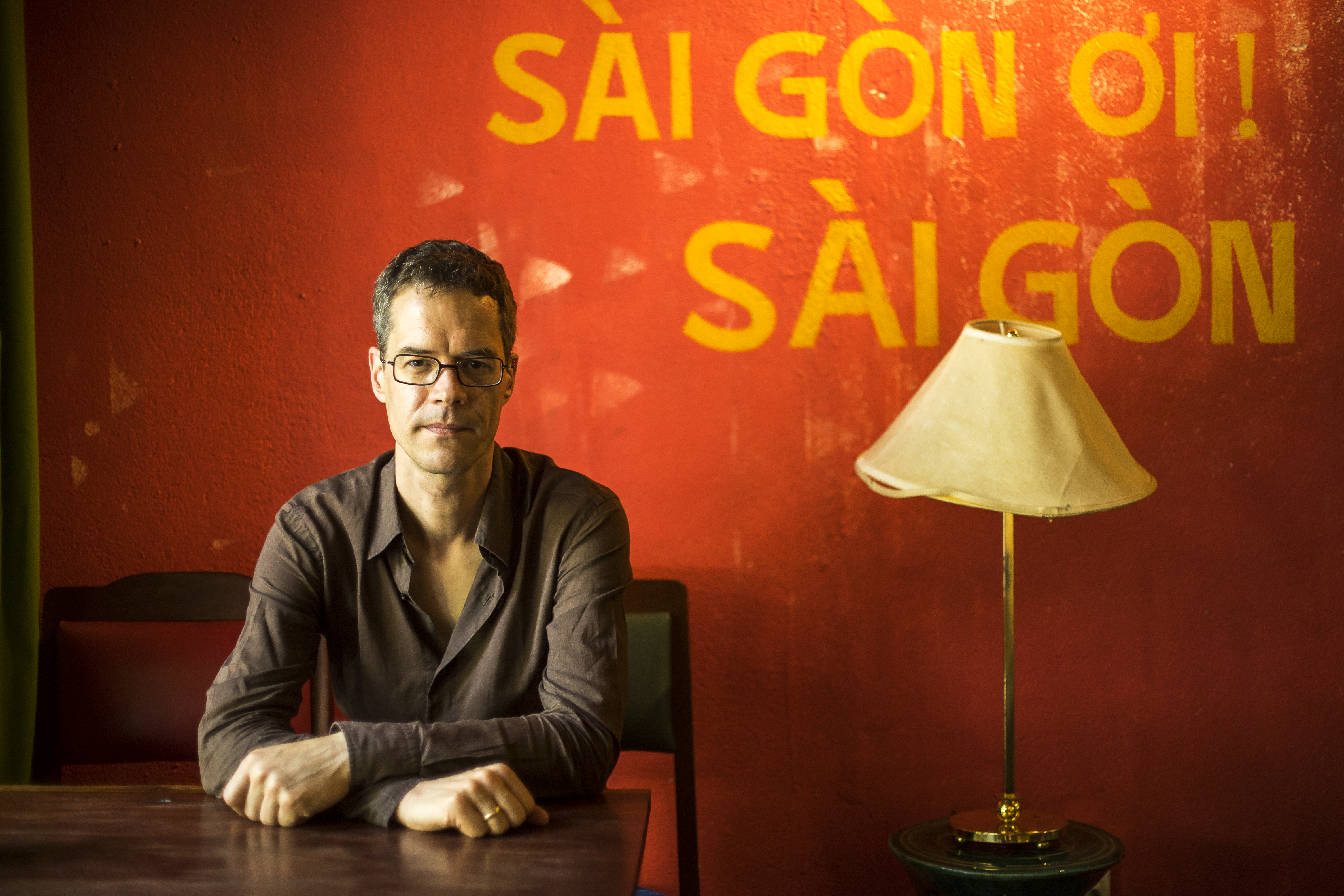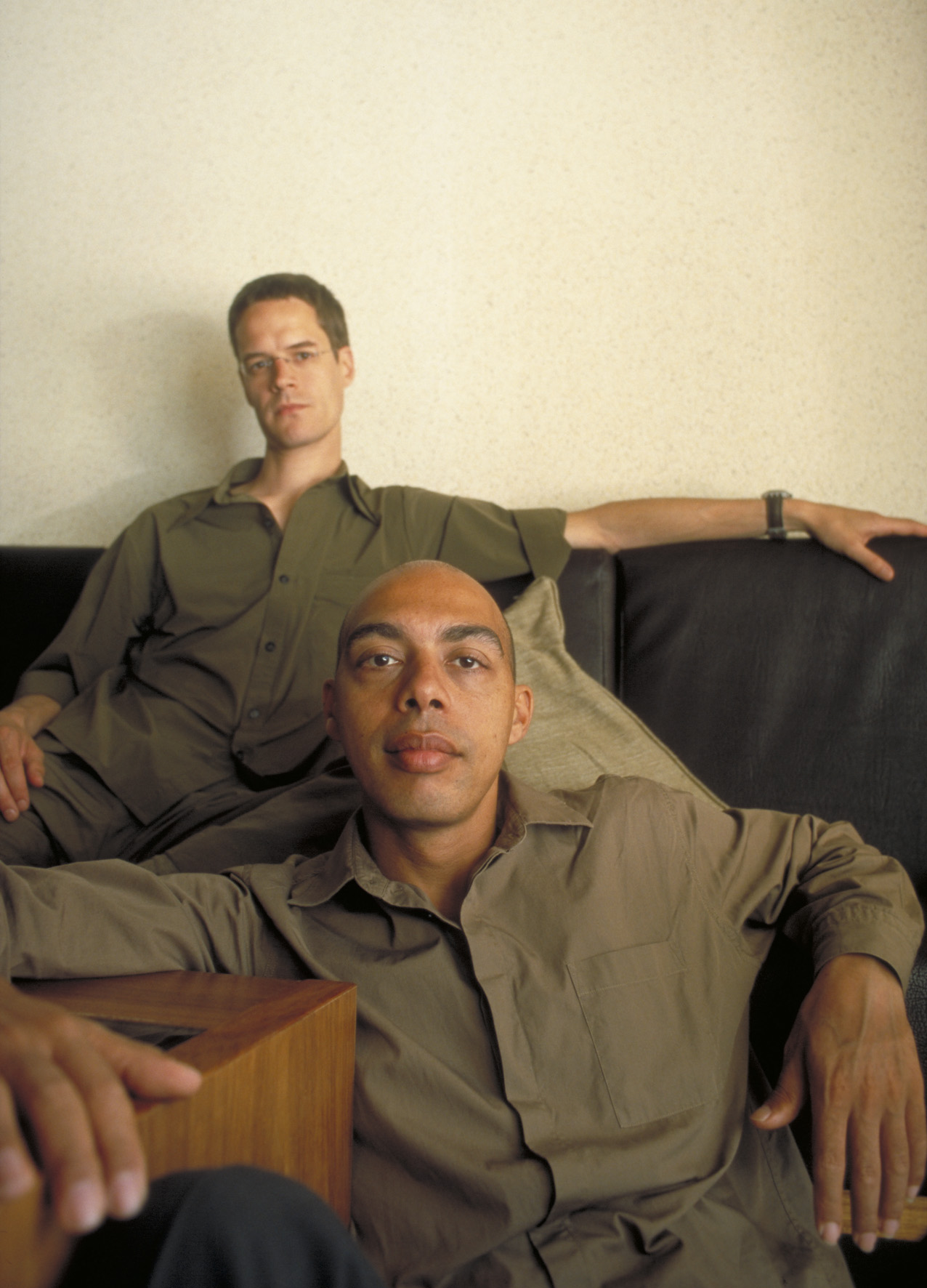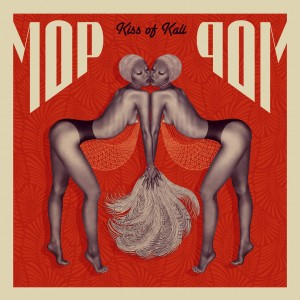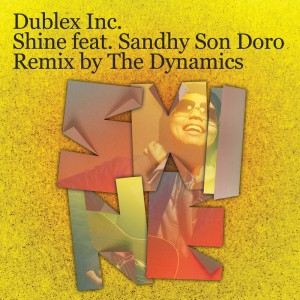



Music-lover and DJ, Jan Hagenkötter is the mind behind the internationally renowned music publishing company and record label INFRACom!, the “jazznotjazz” club brand/series and the festival of the same name in Frankfurt. Located between Saigon and Frankfurt since 2012, he has just released a great compilation, ‘Saigon Supersound’, dedicated on the so-called Golden Era between 1965 and 1975 in the South of Vietnam. The perfect occasion to ask to go back to his own story…
When did you start digging records?
I started digging in the eighties while being a kid around ten years old. It all begun with The Beatles. I tried to get all albums.
What Lp´s did you buy at first? Do you still listen to them?
The first album I ever had was a compilation named ‘Disco Fever’..a crappy chart-compilation, but it contained a xl poster of the Spanish disco girl duo «Baccara». Not sure if I bought it for the poster or the music. Still have the LP, but the poster is gone :-). This was followed by the «red and the blue» double compilation album of the Beatles and a Cat Stevens album named ‘Foreigner’ which is not considered as one of his best albums…but for me it´s a great soulful album and I still listen to it. It was recorded in Jamaica. Drums by Bernard Purdie. Also Johnny Guitar Watson ‘A real Mother’ was a big influence to me by that time and is still one of my fave albums today. He was such an outstanding artist in his own universe…like Prince later. Last but not least I bought Kraftwerk´s ‘Computerwelt’ which was just released in 1981. A milestone that changed everything for me.
Do you have a particular style or favourite period?
I´m very much into jazz and I love the fifties/sixties period of Latin Jazz, Bossa Nova, Hard Bop and Soul Jazz as well as the Spiritual Jazz of this time. But all in all I listen to many genres and periods and I grew up with a lot of Funk & Soul or R&B as my mother was in a relationship with an Afro-American soldier by that time. So as a kid I spent some time on military bases and had barbecues on the weekends. I bought my first sound-system from an American (dj) soldier when he left Germany. The two 1210MK2 from the sound-system are still my turntables today. I was lucky to experience a rich influence of many styles in my youth…and except for Hard-Rock and Heavy Metal I listen to many different styles until today. I believe there is only good and bad music… No matter which style… I would call myself a «freestyler», but for some styles you need more time to get into them like Jazz… It needs some time and musical knowledge to be ready for this. I started in the early nineties when Hip Hop was flirting with Jazz and the so called «Acid Jazz» movement out of London was taking off. This was, as for many kids of my generation, a key trigger to dig deeper into Jazz I guess.
Are you still digging, buying vinyl, visiting record shops?
Yes, but I now do not find enough time to dig record shops, or flea-markets personally anymore, but those days I only look for very specific records. Mostly albums, not 12 inches, that I really want to listen to. So thanks to the internet it´s easier to get hold of specific copies.
What was your first release on InfraCom?
The very first release was a compilation album we named ‘Home-taping’. We asked many different artists from the Frankfurt area to contribute one title. From techno-producers, reggae / hip hop producers to even art ppl. The album was sold in coffee bars around Frankfurt and we had a big party with all the people involved to re-finance the project. After this they asked us to do another one. So this his how the label started, it was not planned in the first place.
Why did you choose this name: InfraCom? What does that mean?
I used to have a partner and very close friend «Namé Vaughn». Sadly he passed away in 2004. When we started around 1990 to do parties and other stuff we were looking for a name, so we sit together and thought about what are the key things that interests us in life beside the music… What do we want to archive with everything we do, so he came up with «communication» and I came up with «infrastructure». So this is how the name was chosen. Nobody could think about that this term might refer more to IT or telecommunication companies in the future… Back then we were quite ahead of our time with the name:-)
What could be your editorial/aesthetic line?
We do have an idea about the aesthetic aspect. Namé studied communication design and did a lot in the beginning, like the logo of our label. But I have to give a credit to Rafael Jiminez Heckman (www.fuku.org). He is working with us since the first days of the label and he has done at least 70% of all cover artworks and much other stuff. I really enjoy working with him. First because he is good in what he is doing and second we can talk about things without the “ego” problem between two creative ppl. I think we have found kind of an aesthetic-line over the years for the label, but we try to not overwhelm the project or artists with it. So it is still «open». It´s interesting to see how other graphic designers that contributed things to the label fit into this.

Jan & Namé…
[re-jazz] Alice Russell
Gabrielle
What could be the label’s leitmotif?
We have always been interested in people itself in the first place. The way we thought was, if a person is interesting and has something to say his musical output must have some kind of value. Also we had a lot of artists on the label that had a proper musical education. Even if they did not use it directly in their productions like Kabuki (from the Megashira project) for example… a Drum & Bass producer, but also a classical trained guitar player in his youth. Or Andrea Benini from Mop Mop who is a drummer… Matthias Vogt from [re:jazz], Motorcitysoul who studied jazz piano and church organ. Shantel who played the guitar. So with a lot of the artists/project we started to work even they had no production/release before or a final « demo-tape ». But we believed in their ideas and wanted to help to develop them.
A main interest was also the connection between «pop» and so called «underground» music. As Namé (who was American german mixed with a father who was a blues guitar player from Detroit) and myself have a more multicultural background with the families we were not so much into segregation. This also reflects in our output I think. We liked the idea of doing something underground or with new styles that interested us like Drum&Bass but at the same time we wanted to release quality albums that could make this music (theoretical) accessible to a bigger audience – in case they have a chance to listen to it. This often leads us to the point were the so called underground ppl said it’s too pop and the radio, it´s too underground. Not all the time this was good for the sales aspect, but somehow we did something right in our opinion. We mainly focused on artist and album projects rather than on pure 12 inch release for the clubs. Also we released a lot 12” with remixes etc… but always to support the artist/album release.
For a long time, you collaborated with musicians as a publisher. How did this activity help you consolidate your label?
As I said, it helps if ppl are trained musicians. Otherwise they will be limited and can not go beyond a certain level. But sometimes it can be the other way around and hold back your creativity to do something (with the machines for example) a musician would not try in the first place. I think their is not «one» single truth wether this is good or bad.
You are known also for jazznotjazz festival. Do you believe the electro jazz scene is still something relevant in 2017?
Let me answer this question with the hook-line line of a great tune by Ten City : «Nothing changed, inside the same, going in circles there´s just different names.» So yes in the moment it is not that fashionable in the moment. But pretty sure it will return in a slightly different way and wasn’t the so called electro-jazz or nu jazz wave just the answer to Acid Jazz ten to fifteen years before?

Mop Mop
Living Beat
How do you decide on the choice of issues and reissues?
I like to focus the answer on the reissue aspect. On the label we haven´t released so many re-issues. Beside the ‘Saigon Supersound’ I only did the ‘Frankfurt Sound from the 60ties up to now’ project, so the reason to do a re-issue is always driven by a personal aspect for me. In this case it was a book by the same name that was released and even won a book price. I read it because I was interested in the jazz history of «my» city. It had two CD attached, but none with music, just the recording of a radio-series, mainly spoken, about the topics in the book. So I felt like I want to hear the music, that´s what it´s about. I called the author and then we published the CD in media-book-format concentrated in the liner-notes on the music and the musicians.
What is the InfraCom LP you are prouder?
Always a difficult question… How to judge this? For the success of an album? For the musical quality… and if you still can listen to it today? In the end there should be a good reason to be proud of every album one put out. But surely some will not stand the test of time and some you would not put out today anymore. But by the time you worked on it it felt right. Personally I´m very proud of the ‘[re:jazz] live in Yokohama’ album and DVD from 2005. That´s because I was so much involved in the filming of the tour documentary in Japan. We went there for three weeks…recorded 8 shows and a lot of interviews etc. Just me and my friend Markus Bader who is a director. We planed it all by ourself, and did everything by ourself from filming, cutting etc. It was kind of a guerrilla action… took us over a year to finish everything, but was a great experience. Also the dvd-doc. is much to long and its maybe not the best production we have released on INFRACom!
All in all the [re:jazz] project, which was not planned to go on for 5 albums… In the beginning we just hat this idea for our 10th anniversary because we were tired of all this label-best of compilations everyone else did. We never ever imagined that this would turn out to be our best selling project on the label. The Saigon Supersound project is the most personal project I have done. So it means a lot to me. It took me a few years to finish it. So there is a story somehow behind each project or release in the end.
You have just published a compilation on the Vietnamese scene of the 70s. How did the idea come to you?
In 2011 me and my wife (who is born Vietnamese) decided to live in Saigon for a while. My very close friend “Edge” who is living in Vietnam was asking if I can help him with a series of half-legal parties (dOse) he did back then. So I had a good reason to go because I could do something in Vietnam and inviting affiliated artists like Quantic / Jazzanova / Alice Russel to Saigon for the first time.
During this time I met the french vinyl selector and DJ Antoine «Datodeo» Touissant and we became friends. He introduced me to his selection of Vietnamese pre75 tunes on 7inch vinyl. So this way I get infected and started to become more interested in the “musical” history of Vietnam. I did not know about it before and you don´t see/hear the music in your daily life in Vietnam… There are no record shops that have these kind of music for sale. I explain this a bit more in the liner notes. It´s also my contribution to preserve some of the music of that period and bring it to a new audience of people outside of Vietnam.
A lot of the people do not know about this music, even younger Vietnamese and Viet-kieu people living abroad I talked to. So I thought this is a project that has to be done… Also for my kids. It was a good way for me to do something connected to them and it had to do with my lives-passion and work. As they are mixed they will ask questions when they grow up. Beside that it was something I haven´t done before and as I´m always looking for new experience and the same time was a bit tired after all those years with the label and the struggle we all went through in the last decade this was something new to me as well.

Connie Kim
Ly Luan Tinh Yeu
How did you make the selection? And is the choice of electism a way of showing, demonstrating, the aesthetic diversity of this scene, even though it is very influenced by the United States?
And the French I must add. I think even more by the French then the US. If you look into Vietnam today you still see the french influences everywhere. In the architecture of the old houses, in the food like the Bánh mì which is a french baguette or the pâté. So it is with the music till 75. The Chanson had an influence on the vocal style of Vietnamese singers. Unfortunately today Vietnam (after the doi Moi in 1986) is ruled more by influences from the US. Not always to their best interest in my opinion! Who needs Mc Donald’s and EDM if you living in a country with the best fast food of the world and a rich (musical) culture? But this is how capitalism and globalisation work. And I do understand the ppl in Vietnam why they want this… Like the saying «The grass is always greener on the other side». Somehow you could think the US won through the back-door. Which absolutely does not mean I support or idealize the system before ´86 in Vietnam. But as a European and foreigner it´s not on me to judge about all this anyway.
The selection of tracks for this compilation is a subjective sample of popular music in that era, informed – of course – by personal likes and influences. This means, for example, that I was interested in latin, rock and soul-flavoured pieces which clearly show elements of fusion with western popular music.
But it was important to me to also include a Vọng Cổ, which is a piece of the Cải Lương, best translated as «theatre music». It was hard to find one that matched with the selection, so I´m more then happy about the one I included in the final track-listing. The Bolero is surly the most popular from. So it was clear to me that that it had to be represented on the album…but not as the dominant theme. So yes, it´s still diverse but also a personal selection in the end and not one on a certificated historical base.
Which would make no sense for me because I also want to attract new ppl to this music …and like back in the days when Hip-Hop-Jazz made me diggin´deeper I believe that if one find the entrance through the compilation then a first step is made…and yes there are many more great Bolero tunes to explore as well.
How long did it take to you to finish that?
I started to work on it more focused in 2013…
Is it easier to make reissues?
No! Absolutely not.
Nowadays, there are many LP labels who follow this model, I mean more quality even if it’s more expensive… but in same time, there are also another « new » LP market, with majors’ come-back and other labels, who prefer to sell cheaper. Is it the (re)creation of two camps for the LP?
Not sure if I understood the question right. But as I see it : There are different kind of target groups for the Vinyl that have different needs and objectives why they buy Vinyl. So record companies follow this trend. But I can not see that this is something very separated. Also I have to say some of the audiophile-hypes like the 180g Vinyl I personally do not understand. I can not hear that sound quality is better when pressed on 180g compared to 140g which is enough to cut a deep groove into the vinyl..everything deeper does not make it sound better anymore. In the end the mastering and cutting are much more important I believe. This you can also see (hear) with the re-issues often.

There are more and more reissues of old LPs, and more and more record labels (major or indie) now release their new artists on LP, or EP. Do you think that the LP reissue market could ever reach saturation point?
Yes it can, but I think not the vinyl market in general, just sections of it like re-issues of African music for example. There might be a point ppl have heard/bought enough and get tired of it or just have no demand to buy more of the same… But then also maybe only for a period of time, because with a new/next «music-virgin» generation the demand might come back, like with the musical styles.Vinyl is here to stay… It´s a yin and yang thing. Digital needs an equivalent and therefor Vinyl is the best medium.
Have you received many negative answers on some of the LPs, artists, unrealeased tapes, you were trying to reissue?
No.
What are your next releases?
I´m working hard to finish ‘Saigon Supersound Vol.2’ in the moment and I´m back to Vietnam therefor in october.
I also have the idea to release a series of limited 7inches with pre75 Vietnamese tunes on one side and a «rework» on the flip-side… Done by Vietnamese producers/musicians and producers who also share roots in Vietnam but living around the globe. It´s an update of the compositions and hopefully make it accessible to a younger and bigger audience. Together with some Viet Kieu guys from Sweden I´m in the preparation process for a small documentary too. We want to start filming in January in Vietnam.
And a few DJ Gigs with Saigon Supersound are also planed. So this project keeps me quite busy and concentrated in the next month… I did not make any plans what will happen afterwards on the label. Matthias Vogt is working on a new Trio album…but we haven´t made plans yet where/when/how to release it.
What is the LP you dream of reissuing?
No further dreams in the moment, and if I think I should re-issue something in the future, I will try to make it happen.